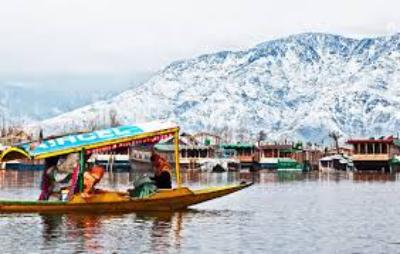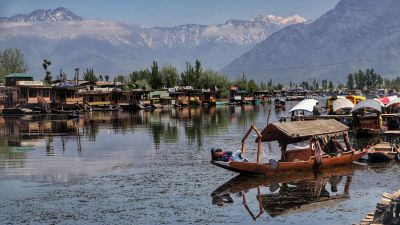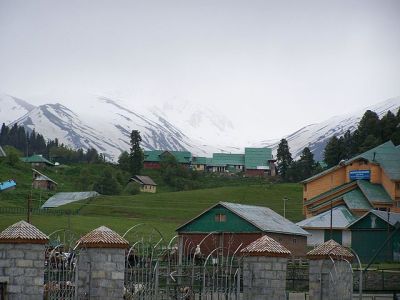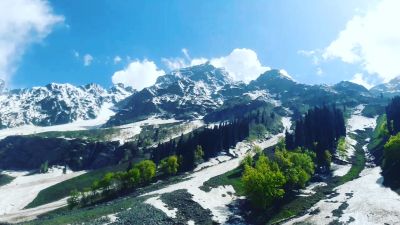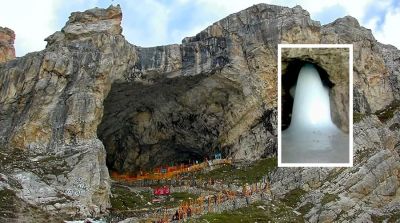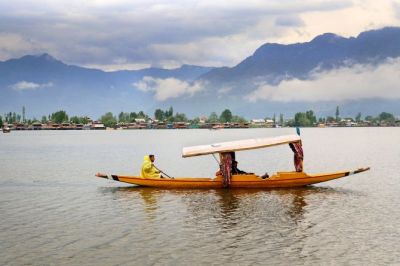Conquering Altitude Sickness: A Guide for Pahalgam Travelers
Conquering Altitude Sickness: A Guide for Pahalgam Travelers
Located in the beautiful valley of Kashmir, Pahalgam is a paradise for nature enthusiasts and adventure seekers. This picturesque town is surrounded by pine forests, meadows, and snow-capped mountains, making it a popular destination for tourists looking for an escape from the hustle and bustle of city life.
However, Pahalgam's high altitude can pose a challenge for some travelers. Altitude sickness, also known as acute mountain sickness (AMS), can occur when you ascend to altitudes above 8,000 feet (2,400 meters). Symptoms of AMS can range from mild to severe and can include headache, nausea, fatigue, dizziness, and difficulty sleeping.
Understanding Altitude Sickness
Altitude sickness is caused by the decreased oxygen levels at higher altitudes. As your body adjusts to the lower oxygen levels, it may result in various symptoms. It is important to understand that altitude sickness can affect anyone, regardless of their fitness level or previous travel experiences. Therefore, it is crucial to be prepared and take necessary precautions while traveling to high altitudes like Pahalgam.
Preparing for the Altitude
Here are some tips to help you conquer altitude sickness during your trip to Pahalgam:
- Acclimatize: Acclimatization is the key to avoiding altitude sickness. To allow your body to adjust to the higher altitude, it is essential to spend a couple of days in a place at a lower altitude before reaching Pahalgam. This will help your body gradually adapt to the change in oxygen levels.
- Stay hydrated: Drinking plenty of water is crucial to prevent altitude sickness. The mountain air is drier at higher altitudes, and you tend to lose more water through respiration. Stay hydrated to keep your body functioning properly.
- Avoid alcohol and caffeine: Alcohol and caffeine can contribute to dehydration and may worsen the symptoms of altitude sickness. It is best to avoid them while you are acclimatizing.
- Take it slow: Ascend gradually and take it easy during your first few days in Pahalgam. Give your body enough time to adjust to the altitude. Avoid overexertion and take frequent breaks while trekking or engaging in any physical activities.
- Pack necessary medication: Consult your doctor before your trip, and ask about medications that can help prevent or relieve altitude sickness. Medications like acetazolamide can be taken as a preventive measure, but make sure to follow your doctor's instructions.
Recognizing Symptoms and Taking Action
Even with proper precautions, it is still possible to experience mild symptoms of altitude sickness. It is important to recognize the signs and take appropriate action:
- Rest: If you start experiencing symptoms of altitude sickness, the best thing to do is to rest. Give your body time to acclimatize and recover.
- Hydrate: Drink plenty of fluids, preferably water or herbal tea, to stay hydrated and prevent further symptoms.
- Descend: If your symptoms worsen or if you experience severe symptoms like severe headache, vomiting, or difficulty breathing, it is crucial to descend to a lower altitude immediately. Descending will help alleviate the symptoms and prevent further complications.
- Medical attention: In severe cases of altitude sickness, seeking medical attention is essential. Pahalgam has medical facilities and professional healthcare providers who can assist you in case of emergencies.
Conclusion
Exploring the natural beauty of Pahalgam is an unforgettable experience. However, it is important to be aware of the risks associated with altitude sickness. By acclimatizing properly, staying hydrated, and taking necessary precautions, you can ensure a safe and enjoyable trip to this breathtaking destination. Remember to listen to your body, recognize the symptoms of altitude sickness, and take the required action to avoid any complications. With careful planning and preparation, you can conquer altitude sickness and make the most of your time in Pahalgam!
Enjoy your trip and share your experiences with others!
Disclaimer : The information provided in this blog is for general informational purposes only. While we strive to keep the content accurate and updated, TravelSetu assumes no liability for errors or omissions. If you believe any part of this blog infringes your rights or causes concern, please notify us immediately at info[at]travelsetu[dot]com so that appropriate action can be taken.

